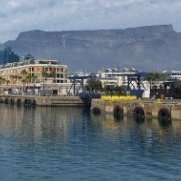Offshore Banking
-
Recently Browsing 0 members
- No registered users viewing this page.
-
Topics
-
-
Popular Contributors
-
-
Latest posts...
-
3
-
8
THAILAND LIVE Thailand Live Friday 22 August 2025
Woman Caught Smuggling Drugs to Boyfriend in Police Custody Picture courtesy of SiamNews. A woman who attempted to smuggle methamphetamine and crystal meth to her boyfriend inside a police holding cell has been arrested, leaving the couple both behind bars. Full story:https://aseannow.com/topic/1370533-woman-caught-smuggling-drugs-to-boyfriend-in-police-custody/ -
0
Crime Woman Caught Smuggling Drugs to Boyfriend in Police Custody
Picture courtesy of SiamNews. A woman who attempted to smuggle methamphetamine and crystal meth to her boyfriend inside a police holding cell has been arrested, leaving the couple both behind bars. Police in Mae Chan, Chiang Rai,had earlier detained a man on charges of methamphetamine use. Later that day, his girlfriend, identified only as Ms Nan, arrived at the station with food, asking to visit him in the detention room. Duty officer Pol Sub Lt Cheep Chainat, responsible for supervising detainees, noticed the woman behaving suspiciously. Following standard procedure, officers searched her before allowing the visit. During the search, they discovered packages of methamphetamine and crystal meth wrapped in white tissue paper concealed in her right hand. Police investigators were called to the scene and Ms Nan admitted that the drugs were hers and that she had planned to secretly deliver them to her boyfriend while he was in custody. Adapted by Asean Now from SiamNews 2025-08-22 -
8
THAILAND LIVE Thailand Live Friday 22 August 2025
Box Van Crashes into Turning Truck, 2 Dead Picture courtesy of Khaosod. A crash occurred on the Nikom Phatthana–Pluak Daeng road near the junction of Route 15 in Rayong’s Nikom Phatthana district yesterday, resulting in two fatalities and two injuries. Full story:https://aseannow.com/topic/1370530-box-van-crashes-into-turning-truck-2-dead/ -
8
THAILAND LIVE Thailand Live Friday 22 August 2025
Kratom May Be Reclassified as Narcotic to Curb Misuse Picture courtesy of Wikipedia Thailand's Justice Minister Tawee Sodsong has revealed efforts to tackle the misuse of kratom leaves amidst rising public worries. Collaborating with Public Health Minister Somsak Thepsutin, Tawee is considering implementing a regulation to control kratom sales, responding to concerns raised by Yala MP Sugano Matha about potential narcotic classification. Full story: https://aseannow.com/topic/1370532-kratom-may-be-reclassified-as-narcotic-to-curb-misuse/ -
0
Report Kratom May Be Reclassified as Narcotic to Curb Misuse
Picture courtesy of Wikipedia Thailand's Justice Minister Tawee Sodsong has revealed efforts to tackle the misuse of kratom leaves amidst rising public worries. Collaborating with Public Health Minister Somsak Thepsutin, Tawee is considering implementing a regulation to control kratom sales, responding to concerns raised by Yala MP Sugano Matha about potential narcotic classification. Kratom misuse, especially its mixture with other substances, has become a nationwide concern following its 2022 delisting. Some parties are still advocating for its reclassification as a narcotic to restrict its use to medical purposes only. Tawee stressed this during a House discussion, acknowledging the necessity for swift legislative action in collaboration with health authorities. Both ministers possess the power to restrict street sales of kratom, aiming to implement regulations to curb abuse, reported the Bangkok Post. The delisting has facilitated a wider kratom trade, enabling the sale of not only leaves but also kratom-based products and beverages. H However, without adequate regulation, the plant's potential for abuse has prompted discussions about stricter legal measures, including reclassification as a narcotic. As such, Tawee and his team are exploring comprehensive solutions to ensure responsible usage and control. Adapted by ASEAN Now from Bangkok Post 2025-08-22
-
-
Popular in The Pub




.thumb.jpg.d9f3e54432a0ae65f4d5beb0d2d122ce.jpg)





Recommended Posts
Create an account or sign in to comment
You need to be a member in order to leave a comment
Create an account
Sign up for a new account in our community. It's easy!
Register a new accountSign in
Already have an account? Sign in here.
Sign In Now